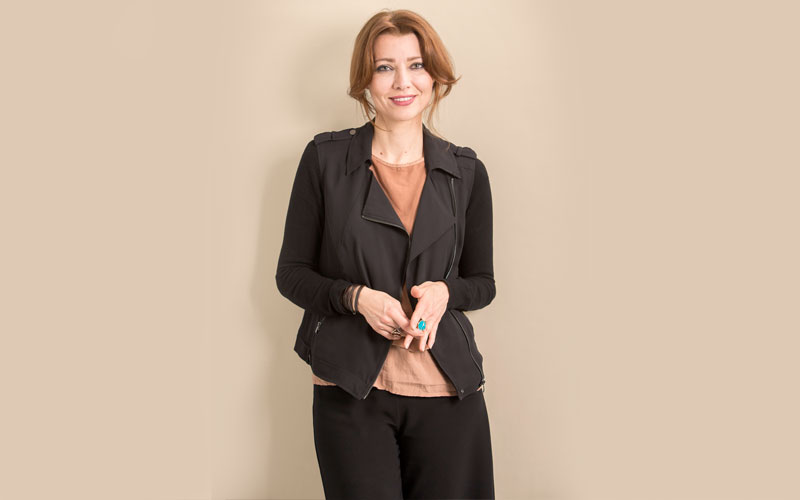At last week’s 2016 shortlist event, brilliant judge Elif Shafak gave a wonderful speech prior to announcing this year’s Baileys Women’s Prize for Fiction shortlist. Elif has kindly written up her wise words about women writers, sexism in the publishing industry and being on this year’s judging panel.
As a Turkish writer, I come from a land where women have always been regarded as great storytellers: Turkish, Kurdish, Armenian, Jewish, Alewi, Circassian… Women have not only been the narrators of stories in their particular communities, but also the bearers of memory. And this in a country that has gone through many ruptures throughout its history; a place where social and political transformations tend to happen too suddenly, too fast, and often painfully. Women have always been the carriers of memory despite this ongoing “collective amnesia”.
In Turkey, like elsewhere, it is a well-known fact that most fiction readers are women—women buy more novels and not only that, they talk about the books they like with such passion and commitment that they inspire the people around them to read the same books too. The publishing industry owes so much to the energy of female readers of all ages and backgrounds, but there’s an underlying assumption that “women read, men write.”
Even though, women are generally seen as “storytellers”, it is all fine and normal so long as they remain anonymous and within the confines of oral storytelling. When the same women step into the privileged zone of “written culture” and they write books and put their names on those books, the perception in both the society and the cultural elite tends to be vastly different.
The literary world might seem to be very progressive and open-minded at first glance. Not necessarily. When you scratch the surface, underneath the glamour, it can be just as sexist, homophobic and patriarchal as the rest of society. In my motherland, a male novelist is first and foremost seen as a novelist. A woman novelist is first and foremost seen as a “woman” and then, a novelist. Until they get old! When women writers/poets/thinkers are old in the eyes of the society, they are de-sexualized and de-feminized; hence they are given more recognition and respect. Perhaps it is no coincidence that across the Middle East female writers can’t wait to get old! We try to age as quickly as we can.
There is a persistent gender gap. And this gap is reflected in the limited number of women writers who are nominated for the limited number of literary prizes. It is reflected in the limited number of books by women authors that are being reviewed in mainstream publications. But more importantly perhaps, it is reflected in the language employed when talking and writing about a woman writer’s work. That language is not neutral.
But let us not make the mistake of assuming that this is happening only in those wobbly, semi-democracies like Turkey or Pakistan, Egypt or Nigeria. It is happening everywhere, in different ways and degrees. The gender gap that exists in the world of arts, culture and literature spreads across the globe. In some countries, discrimination is more visible and tangible, like in Turkey. In some other more democratic and developed countries, however, it can be more subtle and diffused but just as robust. In truth, sometimes, subtle forms of discrimination can be far more difficult to reveal, and therefore to dismantle.
In this environment the Baileys Women’s Prize for Fiction occupies a very special place. There’s no other prize quite like this. We need the Baileys Prize and we will need it until the circumstances that made it so necessary and urgent disappear, some day, from the surface of the earth and we have true equality. Until that day arrives, the Prize will continue to shed light on the amazing works of women storytellers.
This year we were fortunate to have a wonderful panel of judges. We have been and are a team. Each judge comes from a different background with a different literary taste. Such pluralism was a challenge at the beginning and it quickly proved to be a blessing. We debated, we listened, we read and re-read.
Our short list reflects this diversity. This year, as you know, we had a great number of debut writers alongside well-established, well-known names. It was so exciting to see this. As judges, we have read each and every book with the same openness of mind and openness of heart without paying any attention whatsoever to the nationality, ethnicity, race or age of the writer. As a result we approached every book with the same unbiased curiosity.
It is my pleasure and honor to share with you the Baileys Women’s Prize for Fiction 2016 shortlist. The titles on this list are very different from each other in terms of subject and style. There are no overarching themes. But they have one thing in common. Every book on our shortlist is full of courage, creativity, talent and chutzpah.
This is brilliant, honest storytelling at its best.
I wholeheartedly congratulate all the authors on our shortlist, as well as those on our longlist, and I hope these titles will be translated into many languages across the world and will continue to transcend boundaries.



